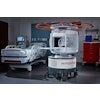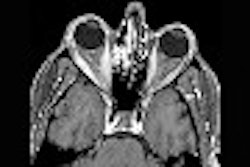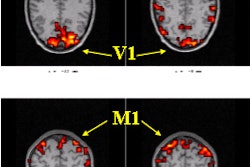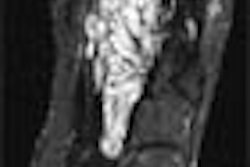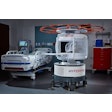Researchers have long known that magnetic resonance imaging has the ability to detect some breast cancers that can’t be seen with other imaging methods. But that capability is now raising another concern: Will increased use of breast MRI take us back to the "bad old days" of more frequent mastectomies?
For better or worse, there is evidence that higher mastectomy rates will be an unintended consequence of increasing MRI use, according to Dr. Jules Sumkin, a professor of radiology at the University of Pittsburgh School of Medicine, and chief of radiology at Magee-Womens Hospital, also in Pittsburgh. Sumkin presented data on the use of breast MRI at the 2002 National Consortium of Breast Centers conference in Las Vegas.
The Magee staff includes nine subspecialists in women’s imaging; roughly 70,000 breast procedures were performed at the facility in 2001. However, despite having an onsite MRI scanner dedicated solely to breast imaging, financial limitations have mandated a conservative use of the modality.
Sumkin estimated that his center would use its dedicated breast MRI system for only 300 scans in 2002. "You could kill yourself doing lots of breast MRIs without being reimbursed," he noted. But even the very modest use of breast MRI has prompted an increase in the facility’s mastectomy rate, and raised questions about what the future might hold.
In his NCBC talk, Sumkin presented data from a 1999 prospective study, which quantified a year’s experience with the dedicated breast MRI system. The center performed just 183 breast MRIs that year. Of those, 14.8% were done to evaluate the integrity of breast implants, 33% to determine the extent of a known breast cancer, 25.1% to decide between differential diagnoses posed by mammographic and ultrasound findings, and 16.9% to look for otherwise occult cancer, typically in high-risk patients with dense breasts.
Of the 40 women evaluated for extent of disease, 24 were slated to have a segmental mastectomy based on mammographic or ultrasound findings, Sumkin said. However, MR imaging found that 7 of the 24 should undergo a full mastectomy instead because of previously undetected multicentric disease, or because the tumors were larger than previously thought. The MRI also confirmed the appropriate treatment plan for the 16 patients who were identified for full mastectomy based on mammographic or sonographic findings, but who were reluctant to accept the earlier findings.
Because surgeons treated some 500 patients with breast cancer at Magee in 1999, MRI’s alteration of the seven surgical plans boosted the facility’s mastectomy rate by only 1.4% over the previous year. However, increased use of breast MRI could significantly raise that number, Sumkin noted, given the significant increase in mastectomies among the few women who had breast MRIs that year. Ideally, an outcomes study will confirm the survival benefit of those altered treatment plans, although such findings will come only years from now.
In the meantime, Magee is one of the facilities compiling data on the effectiveness of breast MRI for screening of high-risk patients with dense breast tissue. "We know we’re finding cancers that wouldn’t be seen otherwise," Sumkin said, "but the question is, who’s going to pay for such screening."
Despite the financial barriers and unintended surgical impact of breast MRI, Sumkin wouldn’t give up his access to the modality.
"I think MR has arrived in terms of becoming a very valuable problem-solving tool," Sumkin said. "I would find it difficult personally to return to our pre-MR days because it has really become integrated into our practice."
By Tracie L. ThompsonAuntMinnie.com contributing writer
June 28, 2002
Related Reading
MRI successfully tracks women with hereditary breast cancer risk, April 8, 2002
Patients with known breast malignancy benefit from MRI, November 25, 2001
MRI superior to mammography in screening high-risk women for breast cancer, July 27, 2001
Breast MRI leads to necessary tumor detection, not unnecessary mastectomy, December 4, 2000
Copyright © 2002 AuntMinnie.com



